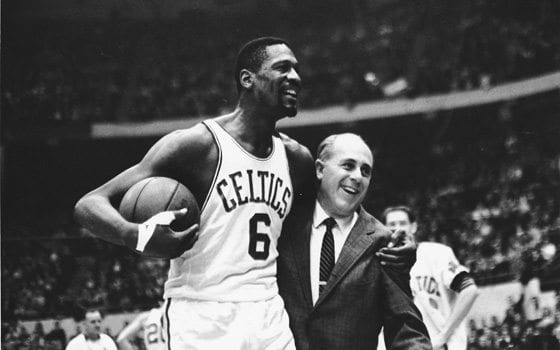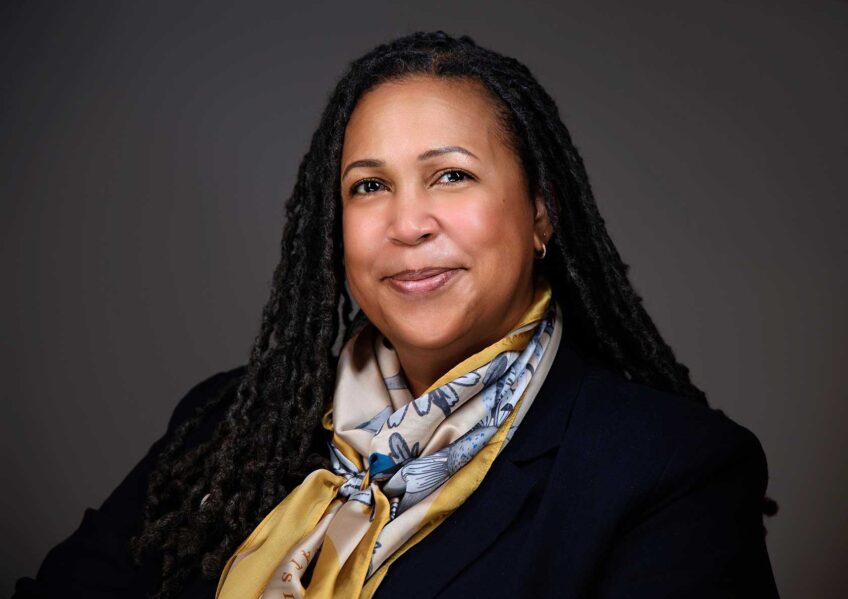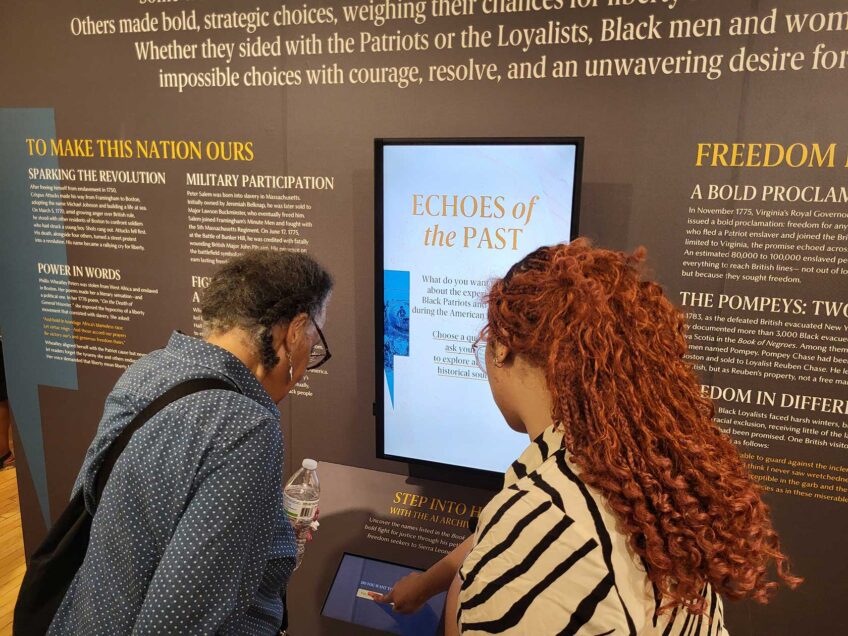
There was a time in American sport, when the phrase “transcended sport” meant more than millions of sneaker sales. When black Americans were still struggling for entry into mainstream society, their prominent athletes carried the burdens and aspirations of a community. One figure who never shrunk from that weighty role was Boston Celtics center and coach Bill Russell.
In the new biography “King Of The Courts,” Winchester native Aram Goudsouzian profiles the legendary big man who transformed the game with his defensive prowess. As Russell has written the autobiographies “Go Up For Glory” (1966) and “Second Wind” (1979), as well as 2009’s “Red And Me” about his relationship with Coach Red Auerbach, Hub readers might wonder what is there left to say?
Goudsouzian’s book is a careful study of Russell’s early influences. Where other works credit his father and grandfather, the author emphasizes the void and abandonment his subject felt when his mother Kate died when Russell was only 12. A late bloomer in basketball, Russell became a studious loner whose work ethic and eye for detail served him before he developed a feel for the game and his body. He led a University of San Francisco (USF) team that, like him, was an underdog work in progress.
1950s Celtics owner Walter Brown did not acquire Russell by promising the Rochester NBA owner some Ice Capades business, as legend has it. Goudsouzian provides a vivid picture of the NBA period as a fledgling circuit run on a shoestring, on legal pads, with minimal television exposure.
Russell’s titanic duels with Philadelphia’s Wilt Chamberlain helped bring major league status. As Russell became a member of his community, buying homes in Reading, and leading protests against the poor condition of Roxbury schools, the general society was in the throes of the civil rights movement.
In 1964, the big man earning $100,001 (he asked for a dollar more’s salary than Chamberlain) purchased local nightclub Slade’s — with the aid of $90,000 SBA loan. His goatee, vocal stance on race relations, and frankness about Boston offended local sports media, fans and associates.
For years, only Auerbach truly sang his praises, as fans wowed by Bob Cousy’s ballhandling wizardry were slow to realize the importance of defense. Even the dynastic Celtics of the early 1960s only drew 8,000 fans per game.
Russell was a complex, savvy figure. Though radical, he never excluded white colleagues, as he was the leader of a team that exemplified racial harmony. He was astute enough never to disparage rival Chamberlain when they were rivals, the men stayed at each others homes after holiday games.
Although Russell became close to activists such as Mississippi’s Charlie Evers, he did not embrace all the tenets of nonviolent passive resistance. Though a concerned father, he had extramarital affairs with women of varying ethnicities, and in the late 1960s, spent parts of his summers nightclubbing and seeking entertainment opportunities in L.A. Russell could be discourteous, haughty, melancholy and a prankster.
Though he sought respect after his retirement as the Celtics player-coach, he publicly offended Chamberlain, drifted in and out of romances and made poor business decisions. He felt he owed fans nothing, and as such, snubbed autograph seekers, and institutions who sought to commemorate his contributions.
As a Supersonics coach in the 1970s, and Sacramento Kings general manager in the late 1980s, Russell was a distant, stubborn leader who lacked a penchant for supervision.
As he mellowed, he made peace, on his own terms, with Boston, sports halls of fames that wished to honor him, and even (for a price) autograph seekers. The “King Of The Court” is a measured portrait of an athlete who was revolutionary both within, and beyond the confines of sport.
Bijan C. Bayne is a frequent contributor to The Bay State Banner






